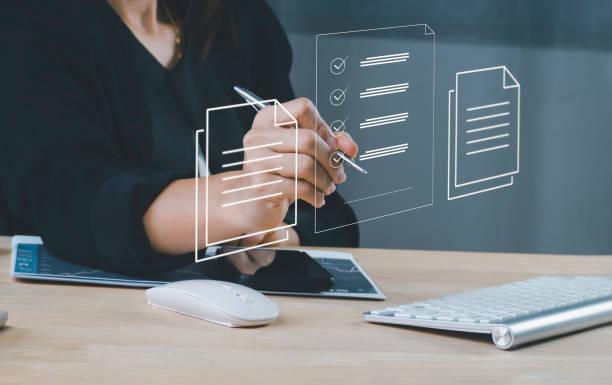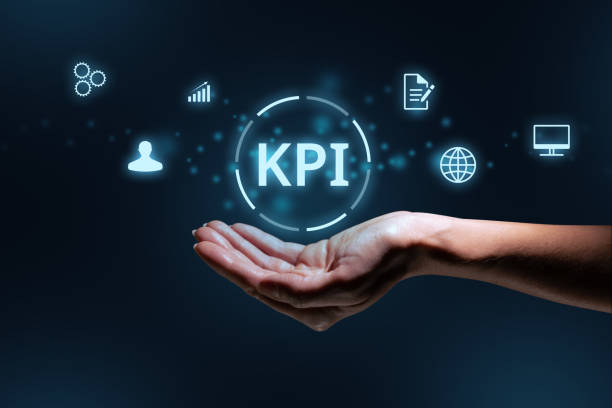What is On-Page SEO and Why is it Important?
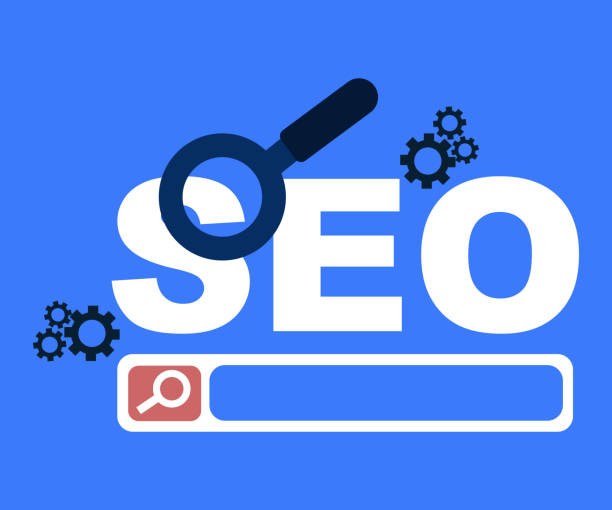
What is On-Page SEO?
On-Page SEO refers to the set of actions you take within your website to improve ranking and visibility in search engine results.
These actions include optimizing content, website structure, HTML tags, and other technical factors.
The main goal of On-Page SEO is to increase the relevance and value of the website for users and search engines.
For more information on SEO, you can visit Wikipedia.
Importance of On-Page SEO
On-Page SEO is very important for several reasons:
- Improved Ranking in Search Results: By optimizing your website, you have a greater chance of ranking on the first pages of search results.
- Increased Website Traffic: Better ranking leads to increased visitors from search engines.
- Improved User Experience: On-Page SEO helps improve the structure and navigation of the website, enhancing the user experience.
- Increased Conversion Rate: Visitors with a better user experience are more likely to become customers.
In other words, On-Page SEO is a long-term investment that helps improve your overall online business.
By using appropriate On-Page SEO strategies, you can turn your website into a valuable resource for users and search engines.
Are you dissatisfied with the low conversion rate of visitors to customers on your online store?
Solve this problem forever with a professional online store design by Rasaweb!
✅ Increase visitor-to-customer conversion rate
✅ Create an excellent user experience and gain customer trust
⚡ Get a free consultation
Keyword Research and Selecting the Best Keywords for On-Page SEO
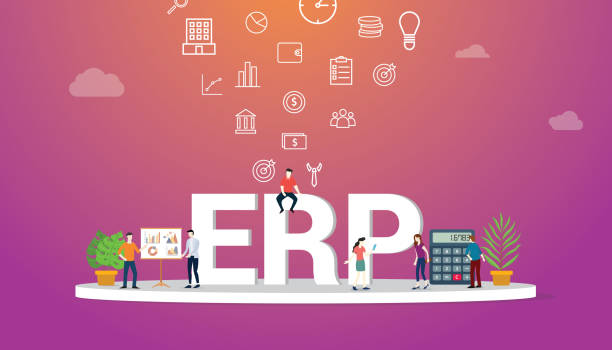
Keyword Research
Keyword research is one of the most important steps in On-Page SEO.
The purpose of this research is to identify the words that users use to search for your products and services.
These words should be relevant, popular, and have suitable competition.
Various tools are available for keyword research, including Google Keyword Planner, Ahrefs, and Semrush.
Selecting the Best Keywords
After conducting research, you should choose words that are most relevant to your business and have a good search volume.
You should also pay attention to the level of competition for these words.
Words with very high competition may be difficult to rank for.
When choosing keywords, consider the following points:
- Relevance: Keywords should be relevant to your products and services.
- Search Volume: Keywords should have an acceptable search volume.
- Competition: Choose keywords with reasonable competition.
- User Intent: Consider what the user is looking for when searching for this word.
By selecting the right keywords, you can optimize your content and increase your chances of ranking in search results.
On-Page SEO with the right keywords will have a significant impact on the visibility of your site.
Optimizing Titles and Meta Descriptions in On-Page SEO
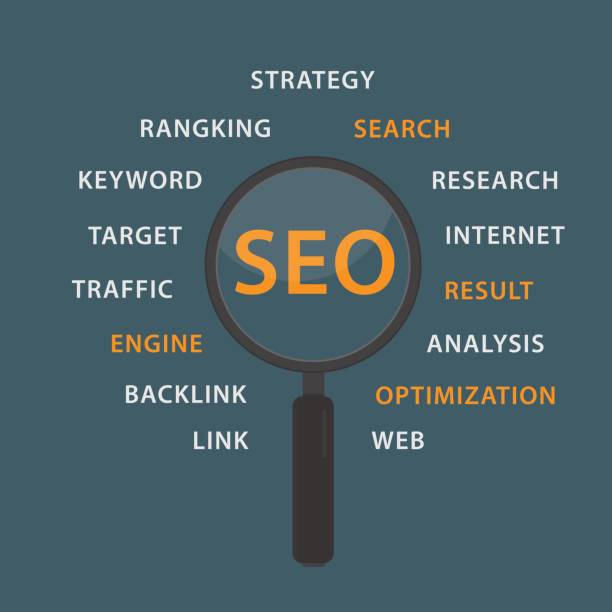
Importance of Titles and Meta Descriptions
Titles and meta descriptions are very important elements in On-Page SEO.
Title Tags are displayed at the top of the browser and help search engines and users understand what your page is about.
Meta Descriptions are summaries of your page’s content that are displayed in search results.
Title Optimization Tips
- Proper Length: Titles should be between 50 and 60 characters to be fully displayed in search results.
- Main Keyword: Place your main keyword at the beginning of the title.
- Attractiveness: The title should be attractive and engaging to encourage users to click.
- Uniqueness: Each page should have a unique title.
Meta Description Optimization Tips
- Proper Length: Meta descriptions should be between 150 and 160 characters.
- Main Keyword: Include your main keyword in the meta description.
- Attractiveness and Persuasion: The meta description should be attractive and persuasive, encouraging users to click.
- Concise and Useful: The meta description should be a summary of your page’s content.
- Uniqueness: Each page should have a unique meta description.
By optimizing titles and meta descriptions, you can increase your chances of attracting users from search results.
These two elements have a significant impact on On-Page SEO and increasing website traffic.
Proper On-Page SEO optimization can have a significant impact on your business.
You can use the table below to check the appropriate length of title and meta description tags.
| Element | Proper Length | Description |
|---|---|---|
| Title Tag | 50-60 Characters | Displayed at the top of the browser and in search results |
| Meta Description | 150-160 Characters | Summary of the page content in search results |
Content Optimization Using Keywords in On-Page SEO
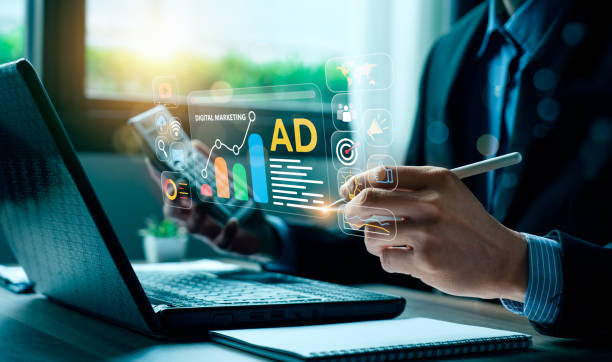
Role of Content in On-Page SEO
Content is one of the most important factors in On-Page SEO.
Quality and relevant content helps search engines understand what your page is about and helps users find the information they need.
By producing quality content, you can increase your website traffic and improve your ranking in search results.
Using Keywords in Content
To optimize content, you should use your keywords naturally and logically in the text.
Avoid overusing your keywords, as this can lead to penalties from search engines.
Instead of focusing on the number of keywords, focus on the quality and relevance of the content.
Consider the following points:
- Main Title (H1): Place your main keyword in the main title of the page.
- Subheadings (H2, H3, H4): Use related keywords in subheadings.
- Main Text: Use your keywords naturally in the text.
- Images: Use Alt Text for images and include relevant keywords in it.
By optimizing content using keywords, you can increase your chances of ranking in search results and improve your website traffic.
On-Page SEO depends on the production of valuable content.
Did you know that a weak company website loses many opportunities daily? Solve this problem forever with a professional company website design by Rasaweb!
✅ Create a powerful and reliable image of your brand
✅ Attract targeted new customers and increase sales
⚡ [Get a Free Website Design Consultation]
Image Optimization for On-Page SEO
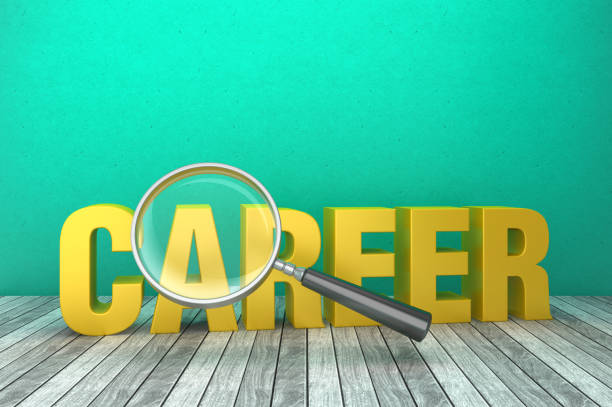
Importance of Image Optimization
Images play an important role in the attractiveness and user experience of your website.
By optimizing images, you can improve page loading speed, increase your website traffic, and improve your ranking in search results.
Image Optimization Tips
- Choosing the Right Format: Use appropriate formats such as JPEG for images with a lot of detail and PNG for images with simple graphics.
- Compressing Images: Compress images to reduce their size and improve page loading speed.
- Using Alt Text: For each image, write a suitable Alt Text that describes the content of the image and includes relevant keywords.
- Choosing a Suitable File Name: Choose the file name of images in a relevant way and using keywords.
- Optimizing Image Dimensions: Place images with appropriate dimensions on your website and avoid changing their dimensions using CSS.
By optimizing images, you can improve the user experience of your website and increase your chances of ranking in search results.
On-Page SEO requires attention to detail.
Optimizing URL Structure for On-Page SEO
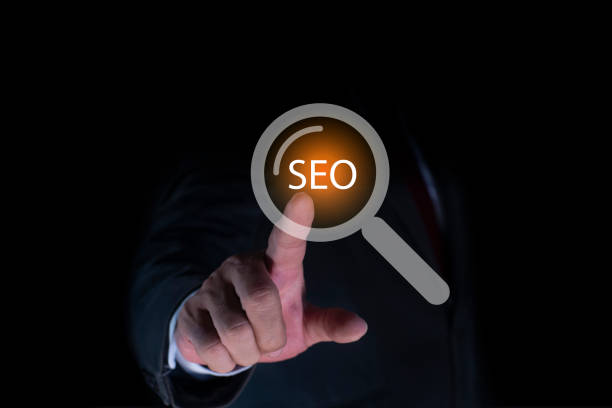
Importance of URL Structure
The URL structure of your website plays an important role in On-Page SEO.
Proper URLs help search engines and users understand what your page is about and easily find it.
Optimized URLs should be short, descriptive, and contain keywords.
URL Structure Optimization Tips
- Using Keywords: Include relevant keywords in your URL.
- Keeping it Short: Keep URLs as short as possible.
- Using Hyphens (-): Use hyphens to separate words in the URL.
- Avoiding Parameters: Avoid using parameters in your URL unless necessary.
- Using a Hierarchical Structure: Use a hierarchical structure to organize URLs.
- Using Lowercase Letters: Use lowercase letters in the URL.
By optimizing the URL structure, you can increase your chances of ranking in search results and improve the user experience of your website.
On-Page SEO plays an important role in improving site ranking.
Optimizing Page Loading Speed for On-Page SEO
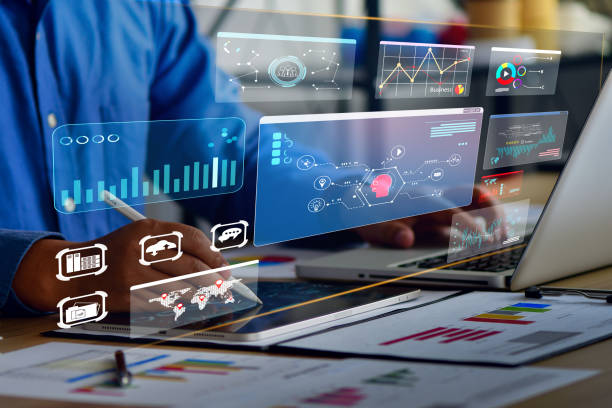
Importance of Page Loading Speed
Page loading speed is one of the important factors in ranking websites in search results.
Users who experience slow page loading speeds are likely to leave the website, and this can negatively affect your ranking.
By optimizing page loading speed, you can improve user experience, increase conversion rates, and improve your ranking in search results.
Methods of Optimizing Page Loading Speed
- Optimizing Images: Compress images and use appropriate formats.
- Enabling Browser Caching: Use browser caching to store static website files.
- Optimizing Code: Optimize your HTML, CSS, and JavaScript code.
- Using CDN: Use a CDN (Content Delivery Network) to distribute your website content worldwide.
- Reducing HTTP Requests: Reduce the number of HTTP requests.
- Optimizing Server: Optimize your server.
By optimizing page loading speed, you can improve the user experience of your website and increase your chances of ranking in search results.
Google PageSpeed Insights is a tool you can use to check your site speed and get suggestions for improving it.
| Factor | Impact on Loading Speed | Improvement Solution |
|---|---|---|
| Images | High image size | Compression, use of appropriate format |
| Code | Unoptimized HTML/CSS/JS code | Optimization and reduction of code size |
| HTTP Requests | High number of requests | Reducing the number of requests (combining files) |
| Server | Slow server response | Optimization of server settings |
Using Internal Linking for On-Page SEO

Importance of Internal Linking
Internal linking means creating links between different pages of your website.
This helps search engines better understand the structure of your website and helps users easily navigate your website.
Internal linking can have a positive impact on your ranking in search results.
On-Page SEO and internal linking are closely related.
Internal Linking Tips
- Using Relevant Text: Use relevant and descriptive text for links.
- Link to Important Pages: Link to important pages of your website.
- Creating Natural Links: Place links naturally and logically in the text.
- Avoiding Broken Links: Check and fix broken links.
- Diversity in Links: Avoid linking to the same page repeatedly.
By using internal linking, you can improve the structure of your website, improve user experience, and increase your chances of ranking in search results.
Internal linking is one of the main techniques of On-Page SEO.
Are you dissatisfied with the low conversion rate of visitors to customers on your online store?
Solve this problem forever with a professional online store design by Rasaweb!
✅ Increase visitor-to-customer conversion rate
✅ Create an excellent user experience and gain customer trust
⚡ Get a free consultation
Optimizing Website Responsiveness for On-Page SEO
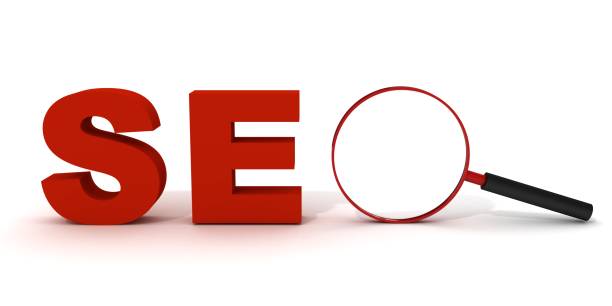
Importance of Responsiveness
Given the increasing use of mobile devices to search the Internet, the responsiveness of your website is very important.
A responsive website automatically adapts to the screen size of different devices and provides a good user experience.
Search engines prioritize responsive websites, and this can have a positive impact on your ranking in search results.
Responsive websites are very important for On-Page SEO.
Methods of Optimizing Responsiveness
- Using Responsive Design: Use responsive design for your website.
- Using Media Queries: Use Media Queries in CSS to adjust the display of the website on different devices.
- Optimizing Images: Optimize images for mobile devices.
- Testing on Different Devices: Test your website on different devices.
By optimizing website responsiveness, you can improve user experience and increase your chances of ranking in search results.
On-Page SEO is based on user experience.
Monitoring and Measuring On-Page SEO Results
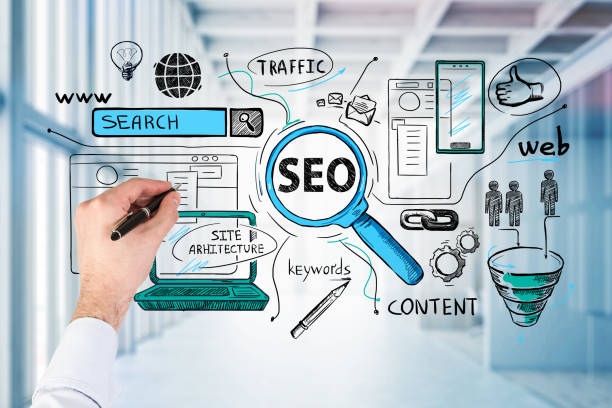
Importance of Monitoring and Measuring
Monitoring and measuring On-Page SEO results helps you understand how effective your strategies are and make necessary changes if needed.
By using web analytics tools, you can track your website traffic, keyword rankings, and other important metrics.
Monitoring and Measuring Tools
- Google Analytics: A free tool for analyzing website traffic.
- Google Search Console: A free tool for monitoring website performance in search results.
- Ahrefs: A paid tool for analyzing websites and competitors.
- Semrush: A paid tool for analyzing websites and competitors.
Important Metrics for Measuring
- Organic Traffic: The amount of traffic that comes to your website from search engines.
- Keyword Ranking: Your website’s ranking for different keywords.
- Bounce Rate: The percentage of users who leave your website after visiting one page.
- Time on Site: The amount of time users spend on your website.
- Conversion Rate: The percentage of users who take a desired action (such as purchasing a product or signing up for a newsletter).
By monitoring and measuring On-Page SEO results, you can improve your strategies and achieve better results.
On-Page SEO optimization requires continuous tracking and analysis.
On-Page SEO is a continuous process and should be constantly monitored and optimized.
Frequently Asked Questions
| Question | Answer |
|---|---|
| What is On-Page SEO? | On-Page SEO refers to a set of actions that are performed within the website and on the content of the pages to gain a better ranking in search results. |
| Why is On-Page SEO important for a website? | On-Page SEO helps search engines better understand the content of your page and assess its importance. It also provides a better user experience for visitors. |
| What are the most important factors of On-Page SEO? | The most important factors include keyword optimization, content quality, Title Tag, Meta Description, URL structure, Heading tags (H1-H6), internal linking, and image optimization. |
| What role does the Title Tag play in On-Page SEO? | The Title Tag is one of the most important On-Page SEO factors that displays the title of your page in search results and the browser tab. It should include the main keyword and be attractive. |
| What is the importance of Meta Description in On-Page SEO? | The Meta Description provides a summary of the page’s content, and although it does not directly affect ranking, it can increase the click-through rate (CTR) by encouraging users to click. |
| How are keywords used in On-Page SEO? | Keywords are phrases that users use to search for information in search engines. The appropriate and natural use of them in the content helps the search engine to identify the topic of the page. |
| What is internal linking and what is its benefit in On-Page SEO? | Internal linking means creating links between different pages of a website. This helps distribute page authority, helps search engine crawlers, and improves user experience. |
| How does image optimization affect On-Page SEO? | Image optimization includes compressing the size, using appropriate Alt tags, and properly naming files. This improves page loading speed and helps search engines understand the content of the image. |
| What does high-quality content mean in On-Page SEO? | High-quality content means content that is comprehensive, accurate, unique, up-to-date, and user-friendly, and meets the needs of users. |
| What role does URL structure play in On-Page SEO? | Readable, short URLs that include the main keyword help search engines and users to better understand the content of the page and improve the user experience. |
And other services of Rasa Web Advertising Agency in the field of advertising
Intelligent Website Development: A fast and efficient solution to increase website visits by focusing on intelligent data analysis.
Intelligent Reporting: A novel service to increase sales through proprietary programming.
Intelligent Google Ads: A professional solution to improve SEO ranking by focusing on marketing automation.
Intelligent Custom Software: A dedicated service to increase sales growth based on optimizing key pages.
Intelligent Conversion Rate Optimization: A novel service to increase sales by managing Google Ads.
And more than a hundred other services in the field of internet advertising, advertising consulting, and organizational solutions
Internet Advertising | Advertising Strategy | Ad Reporting
Resources
The Ultimate Guide to On-Page SEO: Key Tips for Improved Rankings
,On-Page Optimization: Complete Guide
,On-Page SEO: An Actionable Guide to Rank Higher on Google
,What is On-Page SEO? Complete Checklist and Strategies
? For a leap in your business in the digital space, Rasaweb Digital Marketing Agency, with expertise in SEO, targeted content marketing, and user-friendly website design, is the guide to your path to success.
📍 Tehran, Mirdamad Street, next to the Central Bank, South Kazerun Alley, Ramin Alley No. 6

